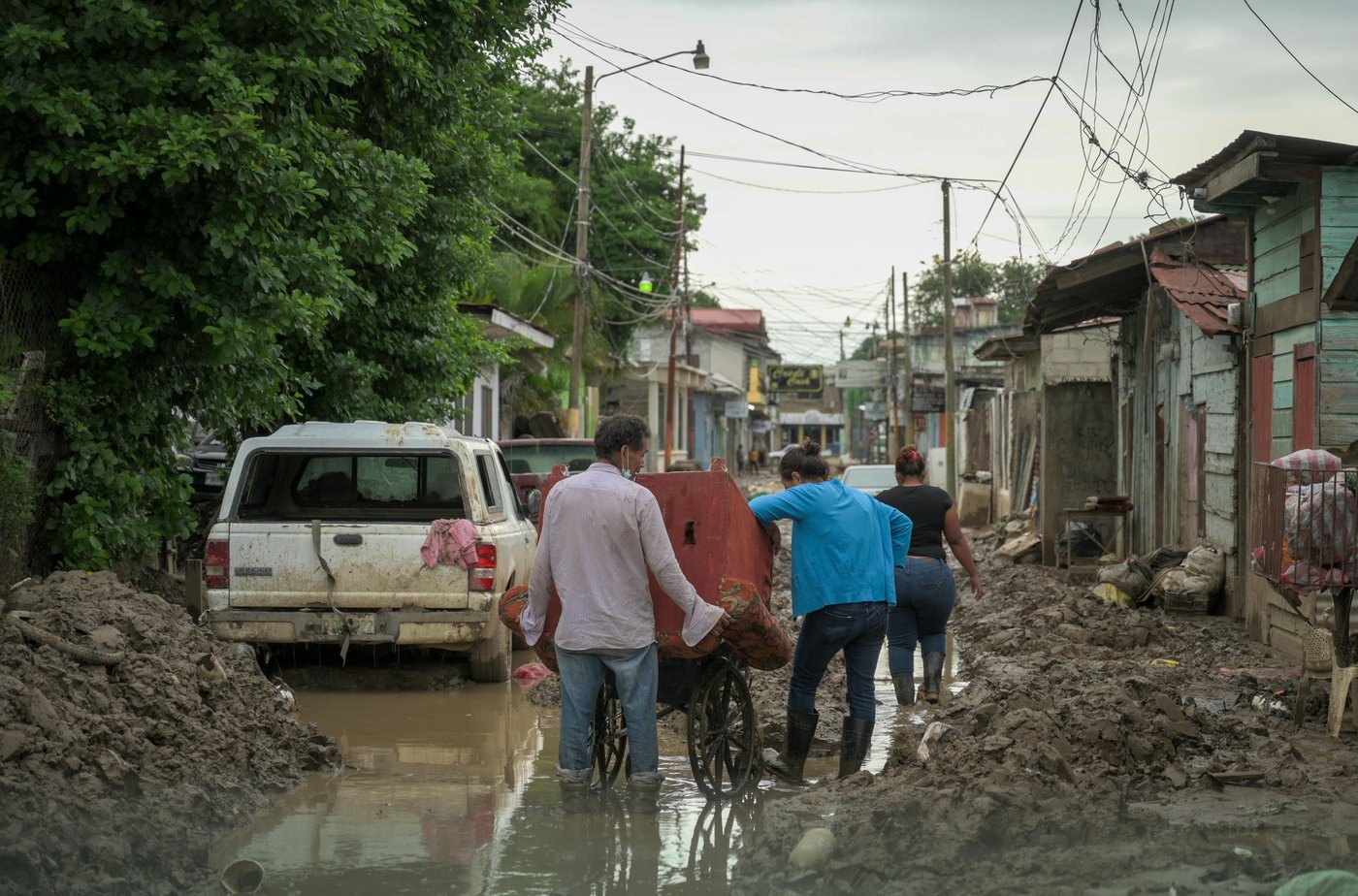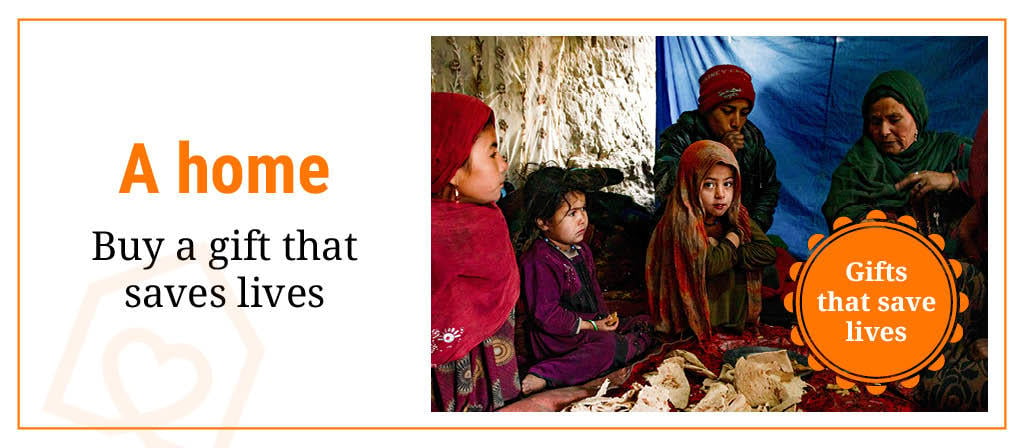
The back-to-back hurricanes of Eta and Iota hit parts of Guatemala, Honduras and Nicaragua, devastating entire communities.
The Norwegian Refugee Council (NRC) is on the ground in Honduras, where the situation continues to worsen. We are providing displaced families with soap, toilet paper, masks and anti-bac, and will be delivering infrastructure improvements.
But the needs are great and more humanitarian relief is urgently needed.
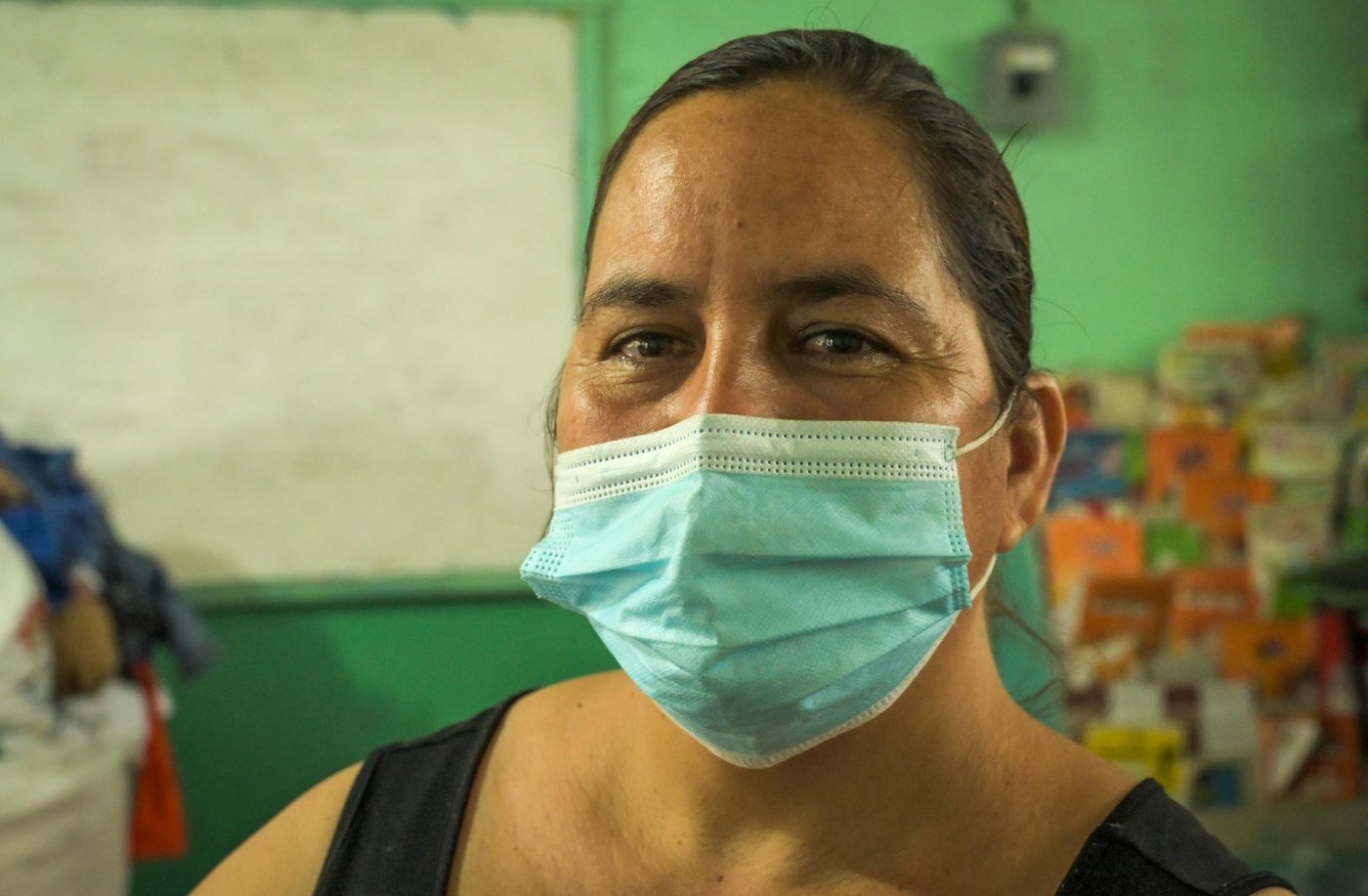
Water and mud everywhere
When they received the hurricane alert, Norma and her family evacuated to her mother’s house. But the water and mud caught up with them even there.
“People began to shout,” Norma remembers. “My husband saw only one way out. ‘Leave everything behind, we have to go now!’ he said.”
Despite losing their home and all their possessions, Norma is grateful that the whole family made it out of the floods alive. “If the flood had arrived during the night, we would all have lost our lives,” she says.
Norma and her family have found temporary shelter in a nearby school. There aren’t enough mattresses to go around and it’s desperately overcrowded. People are sleeping 15 to a classroom, without a safe distance to prevent the spread of Covid-19 and with very little privacy.
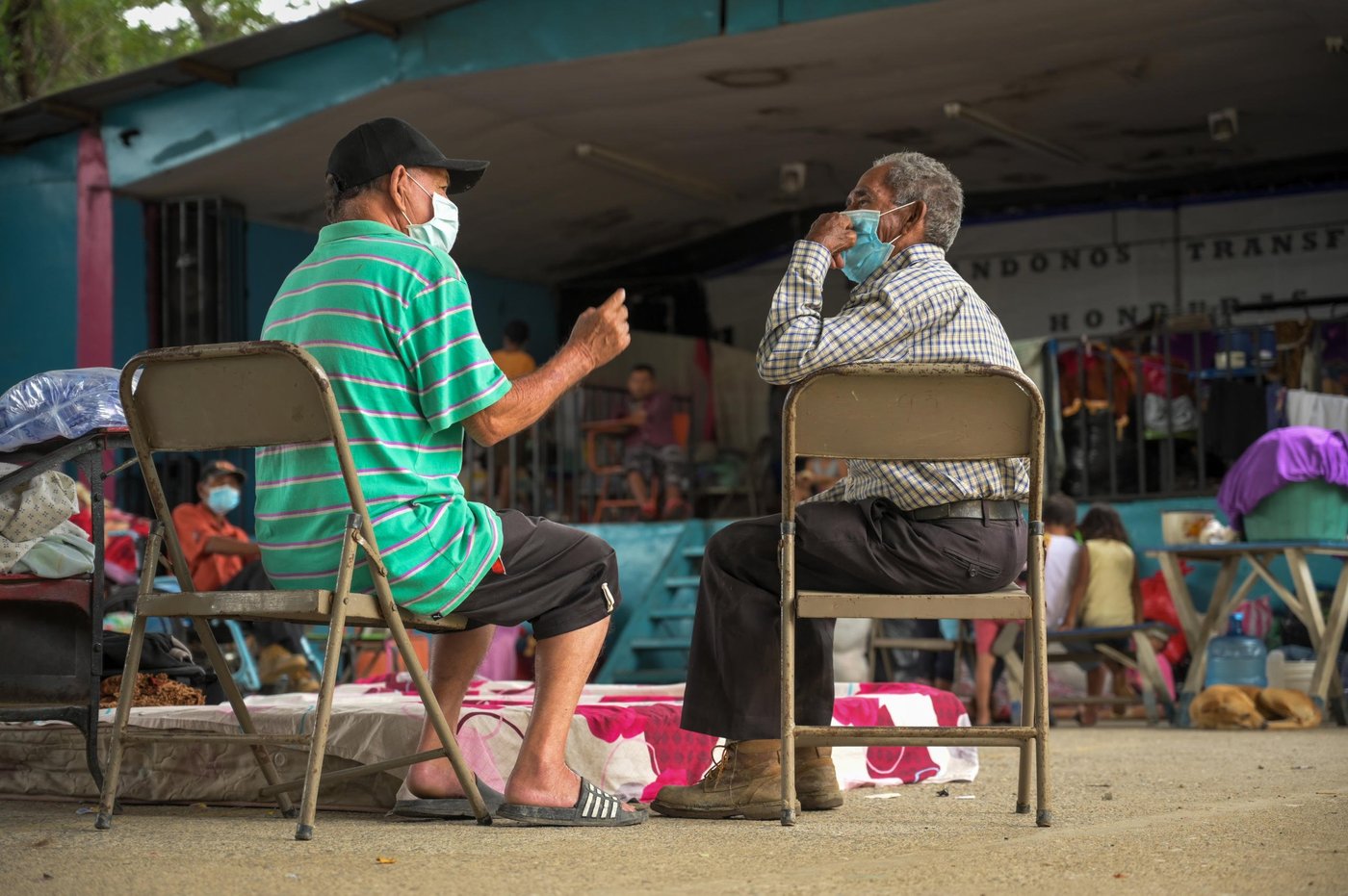
“At the school we have many needs,” Norma explains. “We need bedding, medicine, warm clothes and food. There are many children and old people here who need extra care.”
Not only were homes destroyed by the hurricanes, but hospitals, schools, workplaces and roads were damaged too. There is a desperate shortage of food and Norma is currently volunteering to assist with food distributions every day.
“At this moment we have nothing,” she says. “We will need to gather all our strength in order to rebuild our homes.”
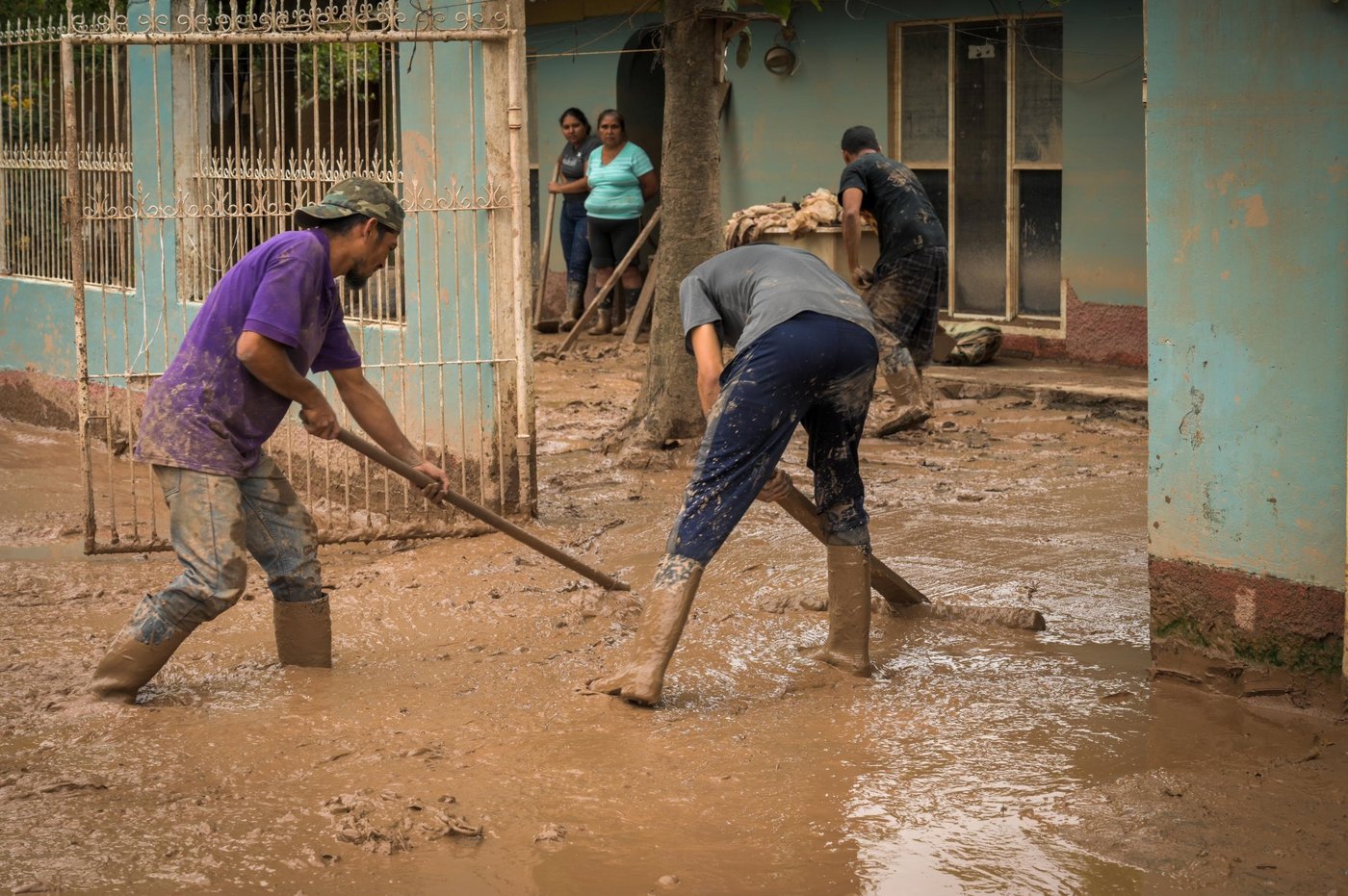
Sleeping on bits of cardboard
Families who have been unable to find space in the schools are squatting by the side of the road or at petrol stations. Others sleep under bridges – having tied together pieces of plastic and cardboard to secure a degree of privacy and protection. Outside the shelters, intricate webs of strings can be seen holding the families’ clothes that never seem to get dry.
A new roadside camp close to one of the worst-hit areas continues kilometre after kilometre, overlooking lower-lying neighbourhoods ruined by a tsunami of mud.

Marlon, 32, his pregnant wife and one-year-old daughter made a quick escape when they received the warning about the incoming flood.
“I tried to gather a few items to take with us, but it was too late. The rain was very strong,” says Marlon. “The first night, we slept outside a building and had no food.”
“We managed to bring some clothes for my daughter, but my wife and I only had what we were wearing. The rain poured down on us and we have been living on the streets ever since.”
![Marlon and his family lost all their possessions in the floods caused by hurricanes Eta and Iota that made landfall in Honduras in November 2020. Together with his wife and one-year-old daughter, Marlon made a quick escape from their neighborhood in Jerusalem nearby the large city of San Pedro Sula.
They are squatting on the grounds of a gas station in La Lima municipality alongside many other families in the same situation. A few plastic sheets are coving the clothes that have been donated by people passing by the gas station. Luxuries such as mattresses are a thing of the past and now replaced with pieces of cardboard, but church organisations are providing a daily meal to the displaced families at the gas station.
"We didn’t manage to get anything out of our house, when we received the warning about the incoming flood. I tried to get a few items with us, but it was too late, and the rain was very strong,” Marlon told.
“The first night, we slept outside a building without having any food. We managed to bring some clothes for my daughter, but my wife and myself only had what we were wearing. That first night, the rain poured down on us and we have been living on the streets since then.”
With the help of other people, we made this plastic roof which has helped us a bit. Today, a woman brought us fruits for my daughter. Before we moved into this shelter, we got soaking wet from the rain, which especially affected my young daughter and my wife, who has health problems and is pregnant at the same time.”
My wife has suffered from epilepsy since she was seven years old. Yesterday she had a seizure because she took the wrong medicine, so now she is dizzy and cannot get up by herself.
Milagros [miracles] is my one-year old daughter’s name. We choose this name because it is what she is: we did not know that my wife was pregnant, she had a heart attack and was in a coma for three days, then we found out that she was 8 weeks pregnant and the doctors said my wife was not going to wake up. We prayed and the girl is here safe and sound".
Photo: NRC/Christian Jepsen](/cdn-cgi/image/width=1400,format=auto,fit=crop,height=931/globalassets/images/countries/honduras/2020/dsc_0806.jpg)
The family has been able to build a plastic roof and feed their daughter with the help of passers-by and church organisations. But Marlon’s wife has epilepsy and is in desperate need of medical assistance.
The hurricanes hit just as the region was struggling under the pressure of the Covid-19 pandemic. The lack of facemasks, the damage to hospitals and the overcrowding in the temporary shelters will make it even more difficult to fight the pandemic.
The families who lost their homes in the hurricanes urgently need safe and dignified places to live.


